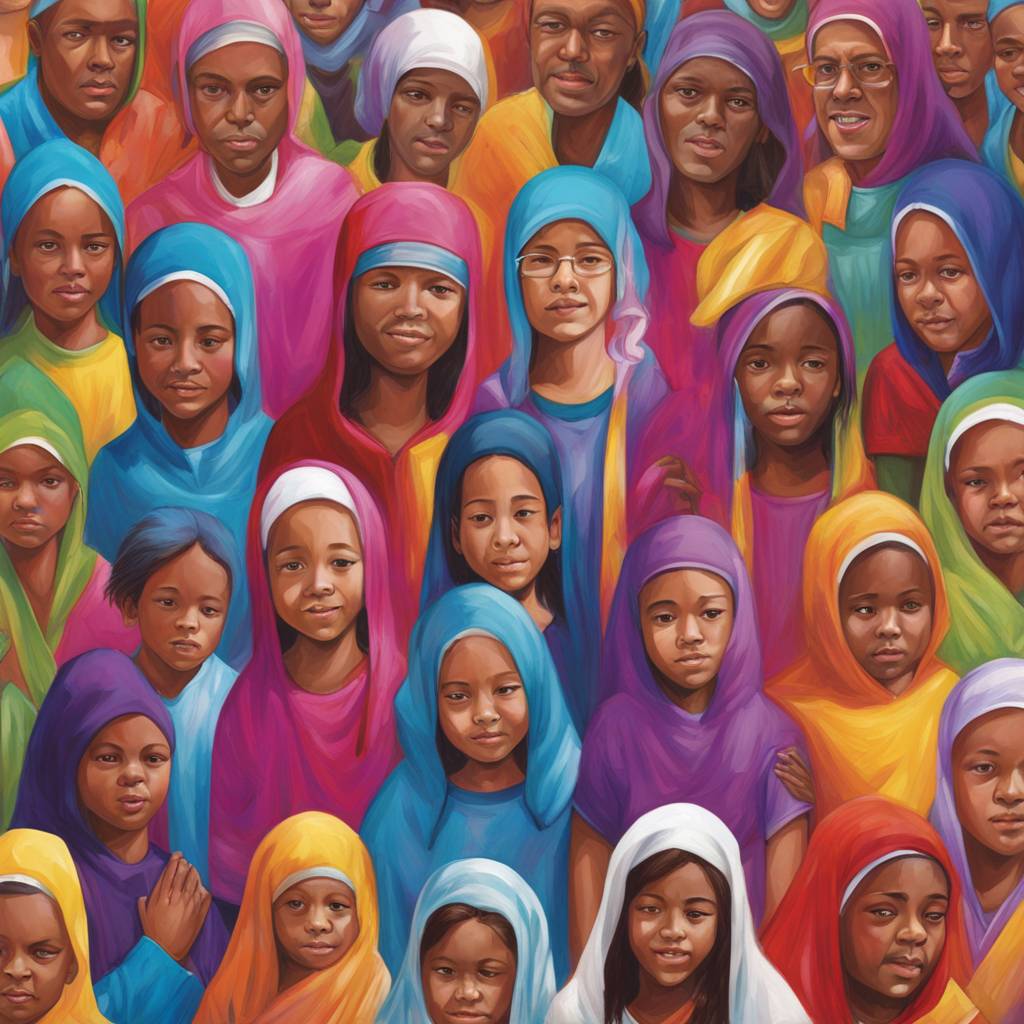A group of 14 people, including Elizabeth Struhs’ parents, have been charged with denying the eight-year-old girl medical care, leading to her death. The group, members of a religious organization called The Saints, allegedly withheld Elizabeth’s diabetes medication for six days and instead prayed next to her as her health deteriorated. The leader of the group, Brendan Luke Stevens, and Elizabeth’s father, Jason Richard Struhs, have been charged with murder, while the other 12 members face a charge of manslaughter. The defendants appeared in court via videolink for a review of arrangements for the upcoming trial.
The trial is expected to last seven weeks and involve 60 witnesses, as well as 76 hours of recorded phone calls that will be played in court. The defendants, who are representing themselves, appeared in court wearing detainee uniforms. The trial plan does not include testimony from police witnesses, who will provide evidence related to devices, CCTV footage, and letters. The case has drawn attention due to the tragic circumstances of Elizabeth’s death and the religious beliefs of the defendants that allegedly led to the denial of medical care.
The case has sparked debate over the balance between freedom of religion and the duty to provide medical care to children in need. The prosecution will likely argue that the defendants had a legal obligation to provide medical care to Elizabeth and that their actions amounted to criminal negligence. The defense may argue that their actions were based on sincerely held religious beliefs and that they believed prayer could heal Elizabeth. The outcome of the trial could have implications for the way similar cases are handled in the future.
The tragic death of Elizabeth Struhs has brought attention to the issue of parental responsibility when it comes to providing medical care to children. The case highlights the need to strike a balance between respecting individuals’ religious beliefs and ensuring the well-being of vulnerable children. As the trial progresses, the court will hear testimony from witnesses and review evidence to determine the defendants’ level of culpability in Elizabeth’s death. The outcome of the trial will have implications for future cases involving the denial of medical care based on religious beliefs.
The defendants, who appeared in court via videolink, face a challenging legal battle as they defend themselves against charges of denying medical care to Elizabeth Struhs. The case has raised important questions about the responsibilities of parents and religious groups when it comes to providing necessary medical treatment to children. The trial is expected to be lengthy, with a large number of witnesses and hours of recorded phone calls to review. The court will need to carefully consider the evidence presented and weigh the conflicting arguments of the prosecution and defense in order to determine the defendants’ guilt or innocence.
Overall, the trial of the 14 defendants charged in connection with the death of eight-year-old Elizabeth Struhs will be a complex and emotionally charged legal proceeding. The case has sparked debate over the intersection of religious beliefs and parental responsibility, as well as the legal obligations of individuals to provide medical care to those in need. The court will be tasked with carefully reviewing the evidence and testimony presented in order to determine the level of culpability of each defendant in Elizabeth’s tragic death. The outcome of the trial will have important implications for future cases involving the denial of medical care based on religious beliefs, and will likely prompt further discussions on this challenging and sensitive issue.


